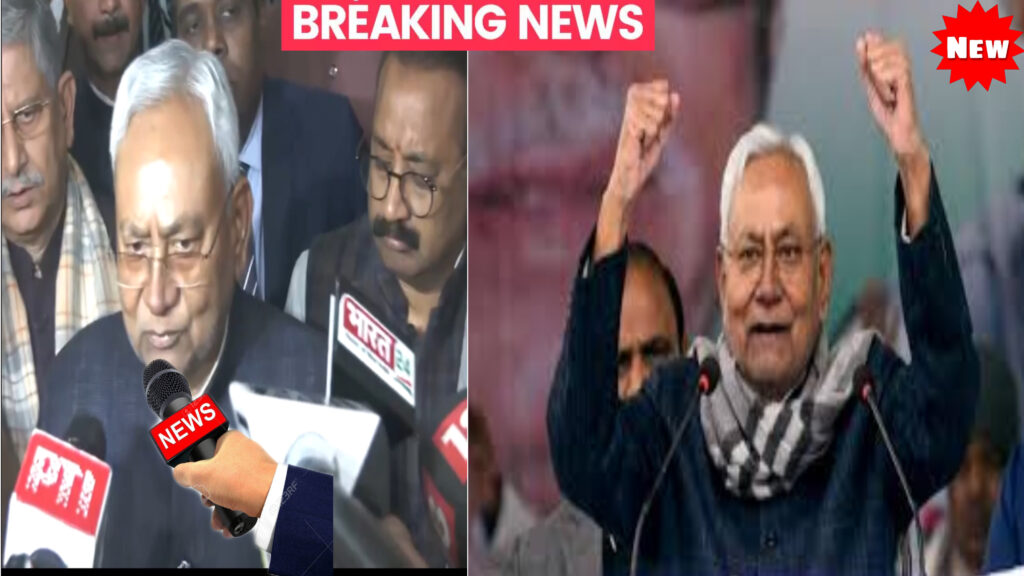The political landscape of Bihar has undergone a significant shift with JD(U) leader Nitish Kumar being sworn in as the Chief Minister of Bihar for a record ninth time. The ceremony took place at the Raj Bhawan in Patna, where eight other ministers were also sworn in. This includes BJP leaders Samrat Choudhary and Vijay Sinha, who will be serving as deputy chief ministers.
This development follows Nitish Kumar’s resignation and his decision to break away from the Mahagathbandhan, an opposition coalition formed to challenge the BJP-led central government. Kumar had joined the coalition in 2022 but has now returned to the NDA, a decision that led to the dissolution of the JD(U)-RJD-Congress coalition in Bihar.
A significant aspect of this political upheaval involved the JD(U) accusing the Congress of usurping the leadership of the Opposition INDIA bloc. Senior JD(U) leader KC Tyagi highlighted that Congress maneuvered to position Mallikarjun Kharge as the prime ministerial candidate, a move that went against the earlier consensus of not having a designated PM face for the alliance.
The key events of this political shift in Bihar include:
- Nitish Kumar submitting his resignation to Bihar Governor Rajendra Arlekar, signaling the end of his alliance with the RJD.
- The breakup stemmed from disagreements within the Opposition INDIA bloc, particularly concerning seat-sharing arrangements.
- Concerns within the JD(U) about the party’s future direction prompted a shift back to the NDA.
- The oath-taking ceremony for Nitish Kumar’s record ninth term as Bihar Chief Minister was scheduled for 5:00 PM in Patna.
- Alongside Kumar, two senior BJP leaders were sworn in as deputy chief ministers.
- The ceremony saw the induction of eight ministers, with further appointments anticipated.
Following the oath-taking, Nitish Kumar expressed his commitment to Bihar’s development, distancing himself from his previous alliance with Tejashwi Yadav and reaffirming his position in the NDA. Deputy Chief Minister Samrat Choudhary projected confidence in the NDA’s electoral prospects, vowing to win all 40 Lok Sabha seats in Bihar.
In his first reaction post-ceremony, Nitish Kumar emphasized unity and the imminent expansion of his ministerial team. Meanwhile, the Bihar BJP, represented by Sanjay Jaiswal, accused Tejashwi Yadav of conspiring to become the Chief Minister and commended Prime Minister Modi for preventing Bihar from experiencing a fate similar to West Bengal’s.
Prime Minister Narendra Modi extended his congratulations to the new government, expressing confidence in its dedication to the state’s development and the fulfillment of its people’s aspirations.
The ministers sworn in alongside Nitish Kumar include three from the BJP – Samrat Choudhary, Vijay Kumar Sinha, Prem Kumar; three from the JD(U) – Vijay Kumar Choudhary, Bijendra Prasad Yadav, Shrawon Kumar; HAM(S) President Santosh Kumar Suman; and independent MLA Sumit Kumar Singh. Each minister pledged to fulfill their responsibilities with integrity.
The conclusion of the oath-taking ceremony marked the beginning of a new chapter in Bihar’s political history, with Nitish Kumar leading the state for a ninth term and a diverse team of ministers supporting him. Among them, independent MLA Sumit Kumar Singh stood out as one of the youngest ministers, known for his close association with Kumar and his role in the previous Mahagathbandhan government. Santosh Kumar Suman of HAM(S), a key figure in maintaining his party’s voter base, also took oath, while JD(U) leader Shravan Kumar, a former rural development minister and advocate for Nitish Kumar as the Prime Minister candidate of the Opposition INDIA bloc, was among the ministers sworn in.
The oath-taking event was not just a formality but a pivotal moment in Bihar’s political arena, symbolizing a significant realignment. Nitish Kumar’s return to the NDA marks a full circle in his political journey, reflecting his strategic adaptability and resilience in the ever-changing landscape of Indian politics. This shift has major implications for both state and national politics, particularly in the context of the upcoming elections. Kumar’s decision to ally once again with the BJP indicates a recalibration of strategies aimed at consolidating power and stabilizing governance in Bihar.
The new government under Kumar’s leadership promises a focus on development and stability. The inclusion of a blend of experienced and new faces in the ministerial team suggests an attempt to balance continuity with fresh perspectives. The presence of leaders like Vijay Kumar Sinha, Prem Kumar, and Shrawon Kumar, each with their distinct political backgrounds and constituencies, points to a comprehensive approach to governance that aims to address diverse regional and political interests.
Moreover, Nitish Kumar’s move has sparked a range of reactions from different political quarters, highlighting the dynamic and often unpredictable nature of political alliances in India. While the BJP has welcomed Kumar back into the NDA fold, the RJD and Congress have been left to reassess their strategies in the wake of this significant realignment. This scenario sets the stage for an intriguing political battle in Bihar, with national implications as parties gear up for the upcoming Lok Sabha elections.
The political developments in Bihar also underscore the importance of strategic alliances and the role of regional parties in shaping national politics. Nitish Kumar’s JD(U), despite not being a large national party, has demonstrated its ability to significantly influence political equations both in the state and at the center. This reinforces the idea that in the complex tapestry of Indian politics, regional leaders and parties play a crucial role in determining broader political narratives and outcomes.

